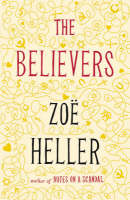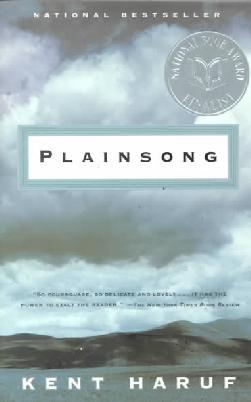 This short video clip and accompanying transcript so aptly explain how fiction can change reality. The author suggests that Katniss in The Hunger Games could express our unease about corruption and capitalism, and that our quest for the “answer” might be found in The Hobbit.
This short video clip and accompanying transcript so aptly explain how fiction can change reality. The author suggests that Katniss in The Hunger Games could express our unease about corruption and capitalism, and that our quest for the “answer” might be found in The Hobbit.
I think of all those novels I have read about relationships both good and bad. What have they taught me – am I a better partner and mother because of them? I remember reading Zoe Heller’s The Believers, the tale of a family where patriarch Joel Livinoff, passionate lawyer and defender of political radicals, suffers a stroke leaving his disagreeable wife Audrey to manage the dysfunctional family. Were the parents so intent on basking in their own self-righteousness and involved in everyone else’s struggles that they failed to see their own? Gulp… was there a message here for me?
Then there is my favourite book of all time, Plainsong, by Kent Haruf.
Set in Colorado in the 1980s, Plainsong tells the story of various Holt residents. There’s teenager Victoria Roubideaux, pregnant and homeless, taken in by two ageing, shy and somewhat taciturn cattle-farming brothers — and the changes wrought in all their lives as a result.
 I often thought about these two brothers, how I would have written them off as slow and uninteresting, yet this story of their kindness and depth affected me greatly. Never judge a book by its cover… indeed.
I often thought about these two brothers, how I would have written them off as slow and uninteresting, yet this story of their kindness and depth affected me greatly. Never judge a book by its cover… indeed.
There are the novels that take you out of yourself yet still challenge. Margaret Atwood has to be the mistress of this genre with her MaddAddam series. Set firmly in the future but with enough credibility to make you stop and think about what we really are doing to our planet. Never teachy, this series still manages to challenge, and I haven’t been able to eat pork since! (Read the books to find out why…)
I always read the afterword or introductions to novels, being fascinated as to whom the author thanks. Invariably their library is mentioned for providing invaluable information, friends and family acknowledged and then details given of how the author obtained information about the subjects covered in their books, including perhaps visits to police to learn about forensics, history books read, archives searched and oral histories relayed. The authors might travel to the places they write about, talk to the people who live there, and facts are made into fiction, but the background is real. In the end for me it is this mixture of reality and fiction that makes a great novel.
What do you think? Can fiction change reality?



Add a comment to: Can fiction change reality?